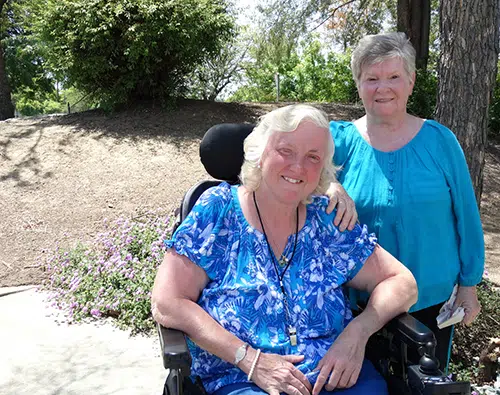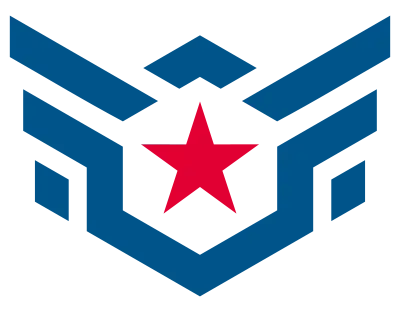Jeanine McDonald still treasures her memories of wandering the aisles of the local Bel-Air grocery store when she was a young girl with her mother. The familiar environment, trusted quality and exceptional customer service motivated her to pursue a job as a Bel-Air courtesy clerk.
Jeanine’s epilepsy, causing spontaneous seizures, makes it difficult for her to find and keep a job. In the year 2000, Jeanine was referred to PRIDE Industries and began working with our Employment Services program to help her achieve her employment of choice.
With the help of job developer, Caryl Balko, Jeanine identified skills and abilities valued by an employer’s such as Bel-Air. “The guidance from Caryl was a huge success for me” said Jeanine, “I do not think I would’ve gotten the job without her.”
PRIDE job developers work one-on-one with individuals like Jeanine to match their abilities and interests to the requirements and needs of local employers. Caryl provided Jeanine with the training necessary to help ace her interview and land her dream job at Bel-Air.
For several years, Jeanine loved wearing her Bel-Air nametag and bagging groceries.
“I absolutely loved that job,” said Jeanine. “The people were so great to me there and I loved going to work.” Collecting a weekly paycheck provided her with a newfound sense of purpose and accomplishment.
Bel-Air quickly realized the tremendous value that their new employee had to offer. Mystery shoppers frequently visit businesses posing as customers to evaluate the service they receive. Jeanine was mystery shopped numerous times and always received remarkable evaluation reports, for which her store was thrilled to give her extra recognition.
Unfortunately, within recent years Jeanine’s seizures have become more severe and more frequent. They began to interfere with her work responsibilities and she no longer felt that she could meet work requirements. Although Bel-Air was willing to work with her unique circumstances, Jeanine was not comfortable providing unreliable work, so she made the difficult decision to leave her dream job.
Right away, she knew where she wanted to go. She wanted to be in a comfortable, safe environment with close friends. She also needed an employer who would understand and make accommodations for her seizures. “At PRIDE I knew exactly what to expect and I wanted to be a part of it. I feel like family here,” said Jeanine. She has been working here at PRIDE for the past year where she still enjoys a sense of purpose and accomplishment at the end of each day without jeopardizing her safety.
Her supervisors are trained and accustomed to working with individuals with disabilities like Jeanine’s. After a seizure, Jeanine would usually be sent home for the day in community employment. However, at PRIDE she is still given the option to continue working with accommodations and modified duties, if she chooses to. This gives her the security to earn a full paycheck even as her condition progresses.
Jeanine is hopeful about her path for the future. In time, her seizures might become controllable again, and she would be welcomed back to her job at Bel-Air. However, PRIDE is honored to provide her with a meaningful alternative.
We are so proud of Jeanine for her hard work both in the community and here at PRIDE!
By guest blogger, Nicole Richards, rehab/marketing intern at PRIDE Industries Headquarters.
Need employment placement support?
“At PRIDE I knew exactly what to expect and I wanted to be a part of it. I feel like family here.”


